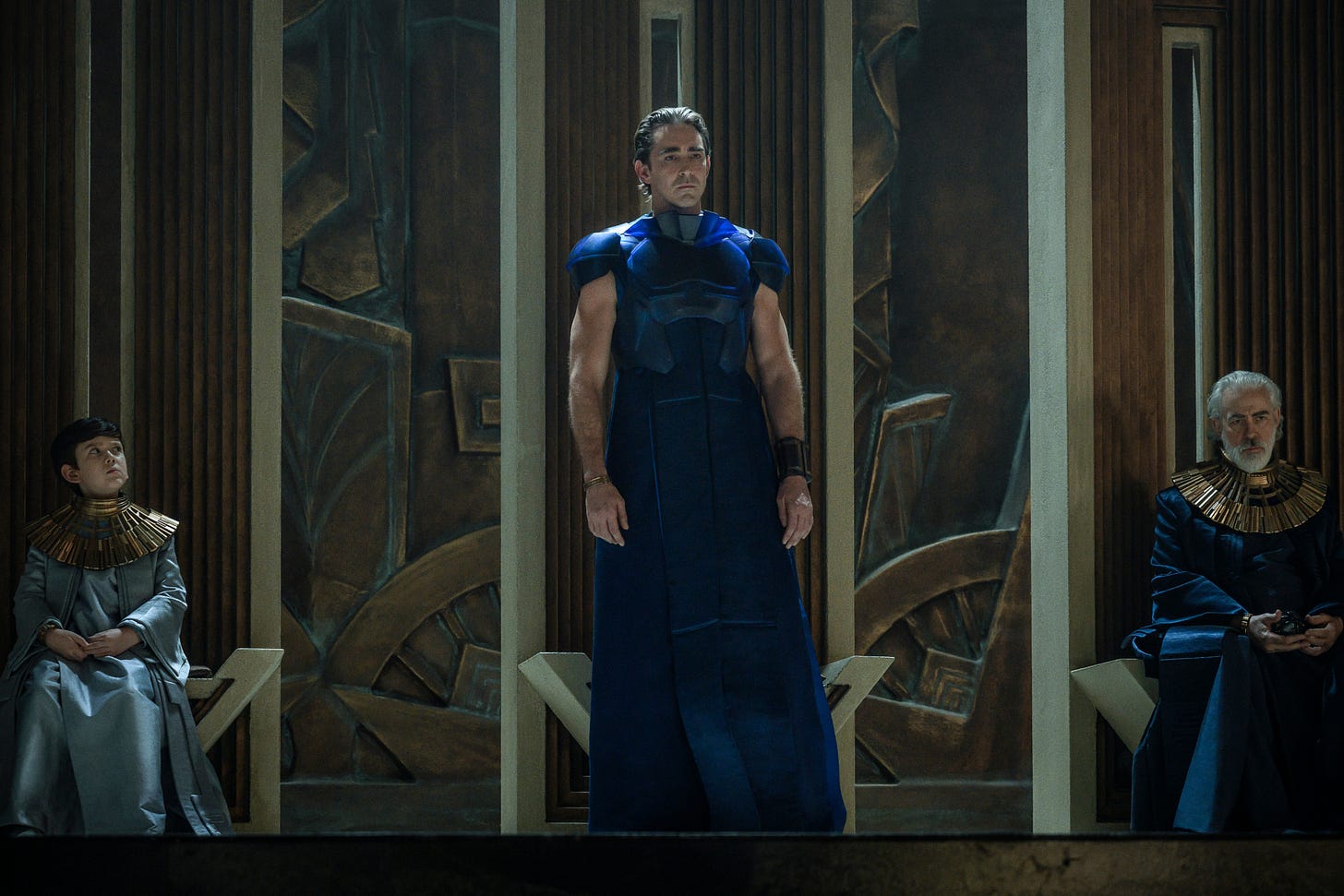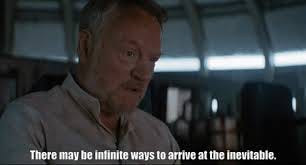we are all "performing" work now 🎭
At some point between the last Zoom call of 2024 and the first mandatory office meeting of 2025, we collectively began pretending we hadn't noticed that artificial intelligence was doing our jobs better than us.
The signs were everywhere if you knew how to look. Y Combinator's winter batch: 87% AI startups. OpenAI's o3: beating 99.9% of human programmers. Investment Banks like Goldman Sachs: quietly replacing junior analysts with models that build spreadsheets in seconds, not weeks. Almost every startup is building AI to replace roles. Not augment—replace.
But it was the return-to-office mandates that gave the game away. Amazon demanded five days. Google wanted four. Even startups that had been "remote-first" suddenly discovered the irreplaceable magic of "water cooler conversations." The official reasons varied—collaboration, culture, mentorship—but the subtext was universal: if an AI can do your job from anywhere, we need to see you doing it from here. The correlation was perfect—every major AI breakthrough triggered a wave of companies demanding physical presence.
We weren't returning to work. We were returning to perform work.
the etymology tells the story
The word "perform" is doing a lot of heavy lifting lately. From the Latin "per" (through) and "formare" (to form), it originally meant to carry something through to completion. To perform was to accomplish, to achieve, to make real.
Now when we talk about performing work, we mean something else entirely. We mean the theatrical kind of performance. Playing a role. And everyone's in on the act.
This is the paradox of 2025: The more capable AI becomes, the more desperately we perform the rituals of pre-AI work.
It's theater, pure and simple. And everyone knows it.
foundation got here first
If you've been watching Season 3 of Apple TV’s Foundation (and you should be), you've already seen our future. The Empire, faced with Mentallics who can predict and manipulate reality with mathematical precision, responds by doubling down on pageantry. More ceremonies. More rituals. More rigid hierarchies.
Sound familiar?
Our return-to-office mandates are Brother Day's ceremonies. Our "human in the loop" requirements are the Genetic Dynasty's rituals. When OpenAI's model beat human mathematicians at the International Mathematical Olympiad, it was our Seldon Crisis—that moment when the trajectory becomes undeniable.
The response? Return-to-office mandates increased 340% in the first half of 2025. It's the corporate equivalent of the Empire's elaborate ceremonies—a desperate assertion of human relevance through proximity.
the AI anxiety
Here's what's really happening: every major AI breakthrough triggers a wave of return-to-office mandates. Gemini beats human coders? Back to office. GPT-5 passes medical boards? Mandatory in-person collaboration. It's like clockwork.
We're not fostering innovation. We're performing humanity.
The word "artificial" comes from "ars" (art, skill) and "facere" (to make). Artificial intelligence is, literally, "made skill." And every day, that made skill gets better at doing what took us years to learn. So we respond by doubling down on the one thing AI can't do: physically occupy space.
It's almost poetic. The more artificial intelligence becomes real, the more human intelligence becomes performance.
Seldon understood that while individual actions were unpredictable, collective human responses to crisis followed patterns as reliable as planetary orbits.
what "presence" means now
"We need your presence," managers say, as if physical proximity generates creative aura. But presence used to mean something deeper—from the Latin "prae" (before) and "esse" (to be). To be present meant to exist fully in the moment.
Now it just means your body is in a chair.
My friend describes her new routine: commute forty minutes to sit at a desk, put on headphones, and do exactly what she was doing from her apartment. The only difference? Now her boss can see her doing it.
The EU's AI Act, which went into full effect in January, mandates "meaningful human oversight" for all high-risk AI applications. What constitutes meaningful? Nobody knows. The guidance essentially requires humans to perform interpretive dance around AI outputs to maintain the illusion of control.
vault of professional identity
Our professional identities have served as vaults, storing skills and entire mythologies about who we are and why we matter. The doctor heals. The lawyer advocates. The engineer builds. The teacher instructs. These are archetypal narratives that have structured human meaning-making since the first professional guilds.
But AI doesn't just automate tasks—it desecrates these narratives. When DeepMind or ChatGPT or Grok models beat human programmers, they are revealing that coding, which we've mythologized as the ultimate expression of human logic and creativity, can be reduced to pattern matching at scale. When ChatGPT passes the bar exam, it suggests that legal reasoning, that supposedly uniquely human blend of logic and ethics, might be more mechanical than we'd like to admit.
This is why the return-to-office mandates feel so desperate. They're not about productivity—every honest study shows remote work maintained or improved output. They're about the visual confirmation of professional identity. If I can see you at your desk, in your business casual, attending your meetings, then maybe we can all pretend the old narratives still hold. Maybe we can ignore that an AI running on a server farm in Iowa is simultaneously doing the work of a hundred such desks.
the word "work" is changing
"Work" comes from the Proto-Indo-European "werg," meaning to do or to make. For most of human history, work produced something—a crop, a tool, a building. Then it produced services. Now, for many of us, work produces presence. We make ourselves visible. We perform productivity.
The office has always been theater. But there was usually some underlying work beneath the performance. Now, increasingly, the performance is the work.
The etymology of "office" comes from the Latin "officium"—duty, service, ceremony. We've returned to the root meaning. Our offices are once again sites of ceremony, not productivity.
The word "redundant" comes from the Latin redundare, meaning "to overflow" or "surge back," like a wave that crashes and returns to the sea. When British companies make someone redundant, they're literally saying that person has overflowed the container of necessary labor. But the current wave of AI-driven redundancy fears represents something different—not an overflow but an evaporation, where entire categories of human capability simply cease to have economic value.
The oversight is theater, a comforting fiction that we're still in control.
what happens next
I don't think we're heading toward some AI apocalypse where humans become obsolete. That's too simple, too Hollywood. Reality is always messier and more interesting.
Instead, we're in this liminal space—from the Latin "limen," meaning threshold (there's that grain-separating word again). We're between what work was and what it will become. And in liminal spaces, humans have always performed rituals to make sense of the transition.
If Hari Seldon were analyzing our crisis, he'd probably identify a few probability peaks: Society splitting into AI-enhanced and AI-rejecting classes. A "Meaning Renaissance" where human effort focuses entirely on what can't be optimized. Or maybe just a comfortable decay, materially satisfied but purposeless.
But psychohistory also teaches us that individual actions matter at crucial points. Every prompt written, every AI output edited, every choice to use or not use these tools is a vote on human relevance.
the show must go on
For now, we commute to offices to sit on Zoom calls. We handwrite content to prove we're authentic. We perform collaboration while AI does the work. These are our rituals, our way of processing a change too big to fully comprehend.
This is the office in 2025: a stage where we perform the memory of human work for an audience of other humans performing the same memory. We're method actors who've forgotten we're acting, or maybe we remember but can't break character because breaking character means acknowledging the show is over.
The etymology of "office" comes from the Latin "officium"—duty, service, ceremony. We've returned to the root meaning. Our offices are once again sites of ceremony, not productivity. We're performing our duty to the memory of human relevance.
But here's the thing about performances: eventually, the audience stops watching. And when they do, the actors have to figure out what comes next. The transition won't be sudden; it never is. One day, we'll simply realize we've been talking to an empty theater for longer than we care to admit.
Until then, I'll see you at the office. Bring your laptop. Wear your costume. Know your lines.
The show, for now, must go on... 🎭



